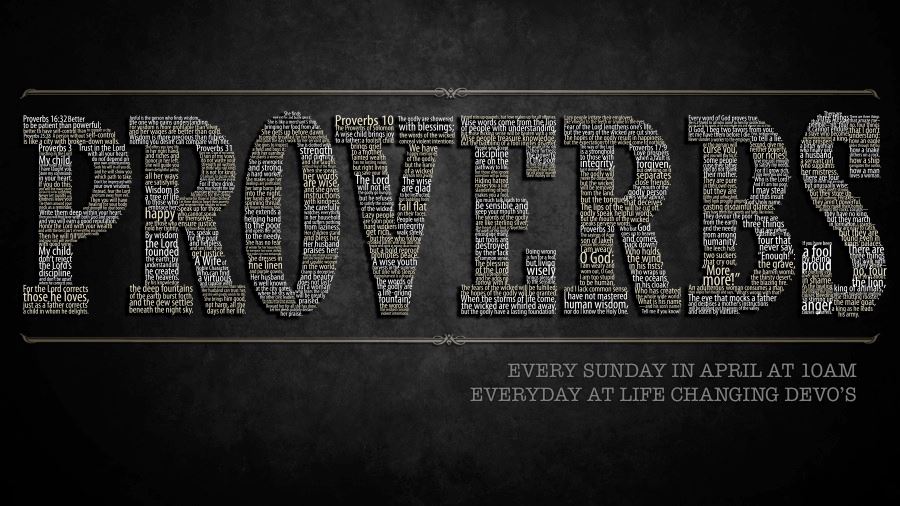After an hour and a half long talk with my pastor and mentor, Anthony Freeman, Nancy and I were blown away by the revys (revelations) about the “mind of Christ” he shared with us. That following Sunday I spent most of the time in our church’s leadership meetings discussing it and how it relates to “unity” in the Body. I pray these notes and revys bless you as they have blessed us!
Main Passage Describing the Mind of Christ
Philippians 2:5-11, “5 In your relationships with one another, have the same mindset as Christ Jesus: 6 Who, being in very nature God, did not consider equality with God something to be used to his own advantage; 7 rather, he made himself nothing by taking the very nature of a servant, being made in human likeness. 8 And being found in appearance as a man, he humbled himself by becoming obedient to death — even death on a cross!
9 Therefore God exalted him to the highest place and gave him the name that is above every name, 10 that at the name of Jesus every knee should bow, in heaven and on earth and under the earth, 11 and every tongue acknowledge that Jesus Christ is Lord, to the glory of God the Father.”
What is the Mind of Christ?
The mind of Christ is the attitude of total submission to the will of the Father.
Brief Commentary On the Passage
- v. 5, Paul commands the disciples in Philippi to be in unity by all having the same “mindset of Jesus Christ.” The word, “mindset” in the Greek is, “phrone?,” which means, “attitude.”
- v. 6, Jesus, who has always existed as God the Son (the eternal Word co-existing with the Father, John 1:1,18) did not use His divinity to His advantage in His earthly ministry of redemption.
- v. 7, Instead of Jesus coming to earth as a “super man” with super-human-divine powers, He instead took the nature of a servant and became a man. Thus, at Jesus’ incarnation (birth) He became the “God-man.” This process of Jesus’ divinity joining with flesh is called the “hypostatic union.”
- v. 8, As God in the flesh, Jesus didn’t act as God, but rather as man. He was obedient to the Father’s will- even to sacrifice Himself on the cross. Jesus said, “Not my will, but your will done,” in Luke 22:42 identifying with the human will. At the same time, Jesus never lost His divinity, He simply set aside its privileges to submit as a man to God the Father.
- v. 9, Before the Son’s incarnation, He was known as the Word in heaven and the “angel (messenger) of the Yahweh (Lord)” to the people of Israel. However, after His incarnation He was given the name “Jesus,” which means, “Yahweh saves.” And after His resurrection God the Father made the name of Jesus the name at which all people must confess to be saved!
- vs. 10-11, Now the name of Jesus, is the greatest name in all heaven and earth. And on judgment day everyone will acknowledge that Jesus Christ is Lord for the glory of God the Father. In other words, Jesus, God in the flesh, is the Messiah and Savior of the world!
In summary: Paul taught the disciples at Philippi to have the same mindset of Christ in their attitudes towards one another. Jesus fully submitted to God and was honored to give the Father glory, thus if they all submitted to the Father’s will they would live in unity and bring glory to God the Father too!
The Possible Reason Paul Wrote Philippians 2 Was Because Two Women Were Not Getting Along
Paul wrote his letters to the churches based on the needs of the local congregations. Certainly, we believe these letters were inspired by God, but we also believe God used the current situations in the church to lead Paul in his writings. For example, the need in Galatia was to correct Jewish legalizers who were trying to force Gentile believers to be circumcised (Galatians 6:11-12), in Corinth his main thrust was to rebuke unchecked sin and disorder (1 Corinthians 5), and in Philippi it was most likely a need for unity between two women who were dividing the church. Read the passage below for the context.
Philippians 4:1-3, “1 Therefore, my brothers and sisters, you whom I love and long for, my joy and crown, stand firm in the Lord in this way, dear friends! 2 I plead with Euodia and I plead with Syntyche to be of the same mind in the Lord. 3 Yes, and I ask you, my true companion, help these women since they have contended at my side in the cause of the gospel, along with Clement and the rest of my co-workers, whose names are in the book of life.”
We don’t know the exact circumstances of Paul’s plea or which woman was right or if both were at fault, but we do know that Paul felt it important enough to mention these two sisters by name- Euodia & Syntyche. They could have been leaders of two different house churches based on the phrase, “these women since they have contended at my side in the cause of the gospel, along with Clement and the rest of my co-workers.” If they weren’t house leaders, they certainly were important to the church because they were called “co-workers” with Paul and Clement, who were preeminent leaders in the early church.
Thus, despite not knowing the situation of these two sister’s division, the following is clear:
- Paul believed the situation was important enough that he needed to mention the women’s names.
- He used the phrase “be of the same mind in the Lord,” in his command to them, thus, referencing his prior passage in Philippians referring to the “mindset of Christ.”
- He considered them powerful co-workers and great leaders that needed to work together in unity for the sake of the local church.
Present Day Application of Paul’s Command to Euodia and Syntyche
- Even great leaders can leave the mind of Christ and begin to operate in their own mind and bring about division (diversion from the vision). Also, Paul calls the mind of the flesh, the mind of death in Romans 8:6, “The mind governed by the flesh is death, but the mind governed by the Spirit is life and peace.”
- Disciples are to unify around the mind of Christ, not the minds or thoughts of men in the flesh- including their own.
- The mind of Christ is always fully submitted to the Father’s perfect will.
- If disciples are always submitted to the Father’s will it is impossible for them to fight, be offended, live in sin, and be spiritually lazy.
- Therefore, if the church finds its members in division, the question must be asked, “Who has left the mind of Christ and has begun operating in the flesh?”
Ten Practical Ways to Have the Mind of Christ
- Be born again by the Spirit and have your mind renewed with the mind of Christ, John 3:3.
- Daily read the Bible and pray to discern what God is saying and thinking about the things in your life, Philippians 1:9-11.
- Discern the origin of your imaginations because God can give you His imaginations to inspire you to do great things, like the “joy set before Christ” that allowed Him to endure the cross, Hebrews 12:2.
- If imaginations are not from God they are either from the devil or your flesh and are considered “vain” and need to be cast down, 2 Corinthians 10:5.
- When you get tempted to be rebellious, offended, and self-centered in the local church ask God, “How can I gain peace through seeing things your way with your thoughts?” 1 John 4:1.
- Repent of all thoughts, selfish ambitions, sins, and offenses that come from the mind of the flesh, Romans 8:6.
- Continually be renewed in your mind when your thoughts are not in line with Jesus’, Romans 12:2.
- Remain accountable and teachable to good leaders who can help discern your attitude and mindset, Hebrews 13:17.
- Pray for your church to be unified around the mind and attitude of Jesus Christ- not the things of the flesh, Philippians 2:1-3.
- If division ever comes in the church, seek God’s mindset to resolve the situation with godly leaders, Philippians 4:1-3.
Consider the following passage as it relates to unity and the mind of Christ. Philippians 2:1-4, “1 Therefore if you have any encouragement from being united with Christ, if any comfort from his love, if any common sharing in the Spirit, if any tenderness and compassion, 2 then make my joy complete by being like-minded, having the same love, being one in spirit and of one mind. 3 Do nothing out of selfish ambition or vain conceit. Rather, in humility value others above yourselves, 4 not looking to your own interests but each of you to the interests of the others.”
From the Heart of a Pastor Desiring the Mind of Christ Both Personally and in the Congregation
Having now gone into the “theology” of the mind of Christ I would like to briefly share my heart as an elder and what it means to me.
- I, as an elder, should never ask people to be unified to my thoughts in the church, but rather to those of Jesus Christ, i.e., “the mind of Christ.”
- Though every disciple in the church may have different cultures, practical ways of doing things, and personalities- we as the Body of Christ should not be offended by those differences, but rather overlook them and be unified around the “mindset of Christ,” Proverbs 19:11. Which is, “total submission to the will of God the Father.”
- I believe the best summary of God’s will and Christ’s mind for the church is to “love God and love people,” Matthew 22:37-39. Therefore, anytime division comes into the church through people’s mind and thoughts we as leaders should seek God and ask, “Are these issues in the church coming from your heart to help us love God and others better? Or are they from the mind of the flesh and the devil which bring death?”
- When the disciples in the church are truly operating in the mind of Christ disagreements and methodology can be lovingly discussed without rebellion and selfish ambitions because everyone has the same mindset- to do that which pleases God.
- However, if a church tries to unify and operate around either the leadership’s fleshy ideas or the member’s carnal self-centered thoughts, God will neither be pleased nor glorified in their midst.
- Therefore, I personally believe that the main job of elders in the church is to preserve unity by “testing” the spirits (mindsets/thoughts) of the disciples and their intentions in the church. And if they are in agreement with “loving God and people” than they should be supported and given room to flourish. But the disciple’s “heart,” “feelings,” or “ideas” that lead to division, offense, confusion, selfishness, pride, or rebellion should be corrected with the Word of God, 2 Timothy 3:16-17.
- In closing, unity is not just a shallow “buzz word,” but rather the very outcome of humble disciples operating in the mind and attitude of Jesus Christ, which was and always will be, in total humble submission to the Father’s will.

Unity is not just a shallow “buzz word,” but rather the very outcome of humble disciples operating in the mind and attitude of Jesus Christ, which was and always will be, in total humble submission to the Father’s will.




